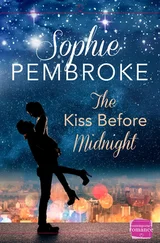* * * *
‘You know, having you actually living in the next village makes this much more convenient.’ Nate Green, co-owner of the Avalon Inn, pushed the inn’s account books across the reception desk.
‘Thought it might be handy,’ Alex agreed, taking the books and tucking them under his arm. ‘Besides, I was starting to miss the old place.’
Nate ducked out from behind the desk. ‘That’s right. You grew up here, yeah?’
Alex nodded. ‘From the age of eleven until I left for university, and quite a few summer holidays before that. Have to say, it doesn’t seem to have changed much.’ Except for Lily Thomas getting tied down and boring, and the huge hole he felt every morning when he came down to the breakfast table in the cottage to find himself the only one there.
‘Been checking out old haunts, have we?’ Nate moved to the front entrance, heaving the heavy oak door open for Alex to step out into the sunshine.
‘Not had much of a chance, yet,’ Alex admitted. Taking care of his dad had kept him pretty busy, then the move itself. But now he had the time… ‘I thought I might take a walk up to the old Mill this afternoon, see if the place has collapsed in on itself yet.’
‘The Felinfach Mill?’ Nate asked, then shook his head at Alex’s nod. ‘Think you might find that place has changed a bit, even if nowhere else has.’
Alex shrugged. ‘Well, it’s a nice day for a walk, anyway. Tell your fiancée I’ll get these back to her by Thursday, yeah?’
Nate nodded, and Alex raised a hand to wave goodbye before he stashed the books in the backseat of his car and climbed into the driver’s seat.
Was everyone getting married this summer? First Cora and Rhys, Lily and her idiot fiancé, and even Nate and Carrie in a few weeks. That one had been inevitable, in Alex’s opinion, ever since Carrie inherited the Inn last winter. Nate and Carrie were a perfect match. They were what Alex was looking for, why he’d moved home to settle down.
Now he just had to find it.
The journey back into Felinfach took him downhill, through trees and past the stream that eventually led to the Mill. He could drive, Alex supposed, but he’d never really spent any time at the Mill since he’d passed his test. To him, the Mill would always be long, hot summer walks out of village, towards freedom. So he parked up in the car park by the tiny Felinfach library, locked the accounts books inside, and set off on foot.
Felinfach had always seemed such a small, confining village during Alex’s teenage years. Now, walking down the high street, taking in the small array of businesses and shops, houses and community features, he realized he’d never taken the time to learn anything about it, beyond the parts he’d felt were oppressing him. School, home, avoiding the neighbours who might report back on his mildly scandalous activities. That had made up his world.
Well, that and the Mill.
When they were kids, the Mill, with its rotting beams and mossy walls, was the only place to be on a summer afternoon. And as teenagers, it was perfect for hiding out with a bottle of cheap cider and a few mates, or to take a girl for a little privacy.
At seventeen, he’d ruled that shambles of a building. At thirty, he was morbidly keen to see what was left of it after he’d grown up and moved away. Did Nate’s cryptic comments mean it had finished falling apart, finally?
Cresting the hill out of the town, the Mill rose up ahead, whiter than Alex remembered. He frowned, but kept walking. Maybe he should have asked Nate exactly what had happened to it. What if some rich couple had bought it and renovated it? More to the point, why hadn’t he thought of doing that? Well, apart from the fact that the place had to be a money pit. It had been on the verge of collapsing in on itself for years. Why else would they all have been so keen to hang out there as kids? The danger was half the fun.
About halfway between the town and the Mill, Alex saw the first sign. ‘Felinfach Arts and Heritage Community.’ So, not a Grand Designs project, then. A business, instead. And one that suddenly held a great personal interest for him.
Increasing his pace, Alex found himself at the entrance to the Mill in no time. The rusty chain-link gates that had never kept them out were gone, replaced by something tasteful in wrought iron, presumably commissioned from one of the Arts and Heritage Community themselves. Another sign, this one decorated in flowing blues and greens, stated the intentions and motives behind what seemed to be a co-operative of artists. And a piece of paper stuck to it declared one empty unit, waiting for the right creative person to fill it.
Alex had never thought of himself as a creative person. His family would laugh at the very idea – in fact, his dad had, the first time he plucked up the courage to mention it. He was a numbers man, all about the hard facts and figures. But then, during a two-week holiday – his first in three years, and forced upon him by his boss to, in his words, “stop you burning out, you idiot,” – he’d picked up a camera and gone looking for things to photograph. And suddenly, as simple as that, Alex had found something he loved more than numbers.
He’d taken a couple of courses since then, and spent his limited downtime improving his technique. He’d stopped staying out late, so he could get some good shots of the morning light on the Thames. He’d stopped dating his usual kind of women, because they always wanted him to photograph them. It wasn’t that he didn’t like taking shots of people, but he wanted them to be real. His girlfriends always wanted to be posing, perfect and unreal. Alex wanted to take photos that showed who they really were.
For some reason, they never liked that very much.
He hadn’t told anyone yet, but the accountancy thing was only to keep the finances ticking over while he fixed up his new home. In the long term, he planned to be a photographer. Like he’d told Cora, his dad’s death might have speeded things up, but this had always been his plan – and knowing it was a plan his father had supported, once he’d got over his surprise, made him all the more determined.
He’d intended to take it slowly, build it up a bit at a time. He didn’t need to rush, not while he could still make money the old way. But seeing that opening at the Mill… What better place for him to set up a studio?
He shook his head and stepped back from the sign. He was moving too fast. Being able to make split-second decisions might be an asset in the City, but not always in real life. So he’d take some time to think it through, look at his plans and budgets, and move when the time was right for him.
Except that strategy was the same one that meant he hadn’t managed to move home properly until after the funeral. And, since he was there anyway, it wouldn’t hurt to look.
Inside, the bright and airy feel of the Mill matched the sign outside. The outbuildings had been built back up from their crumbling state, forming the main artisan units, housing studios and shops, all with wares on display outside in the sunshine. In just a casual glance, Alex spotted a glassblower, a blacksmith, a painter. The Mill building itself, on the edge of the rushing river, looked to be a cafe-cum-gallery, with whitewashed chairs and tables outside, and a chalkboard proclaiming the best Welsh Rarebit in the county.
There were customers and patrons enough wandering around to give the place a buzz; apparently art was thriving in Felinfach. Tucked away in the corner sat an antiques shop – presumably providing some of the heritage the signs boasted of. And next to it…
‘Tiger Lily Jewellery,’ Alex read from the hanging metal sign. The words curved around a stylised white lily, a reminder of a much younger girl than the one he’d seen the day before. Still, he knew beyond a shadow of a doubt to whom the shop belonged. And it was about time he paid her a visit.
Читать дальше












